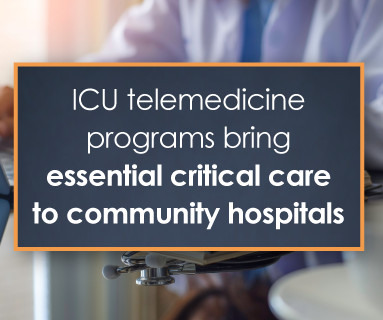ICU telemedicine programs bring essential critical care to community hospitals
Sound Physicians
MARCH 12, 2025
With the absence of intensivists on the ground in these community hospitals, the question becomes how to treat these patients where and when they need care. Our tele-ICU program , which is part of our critical care specialty, has brought meaningful and much-needed intensive care to remote communities for the past five years.














Let's personalize your content